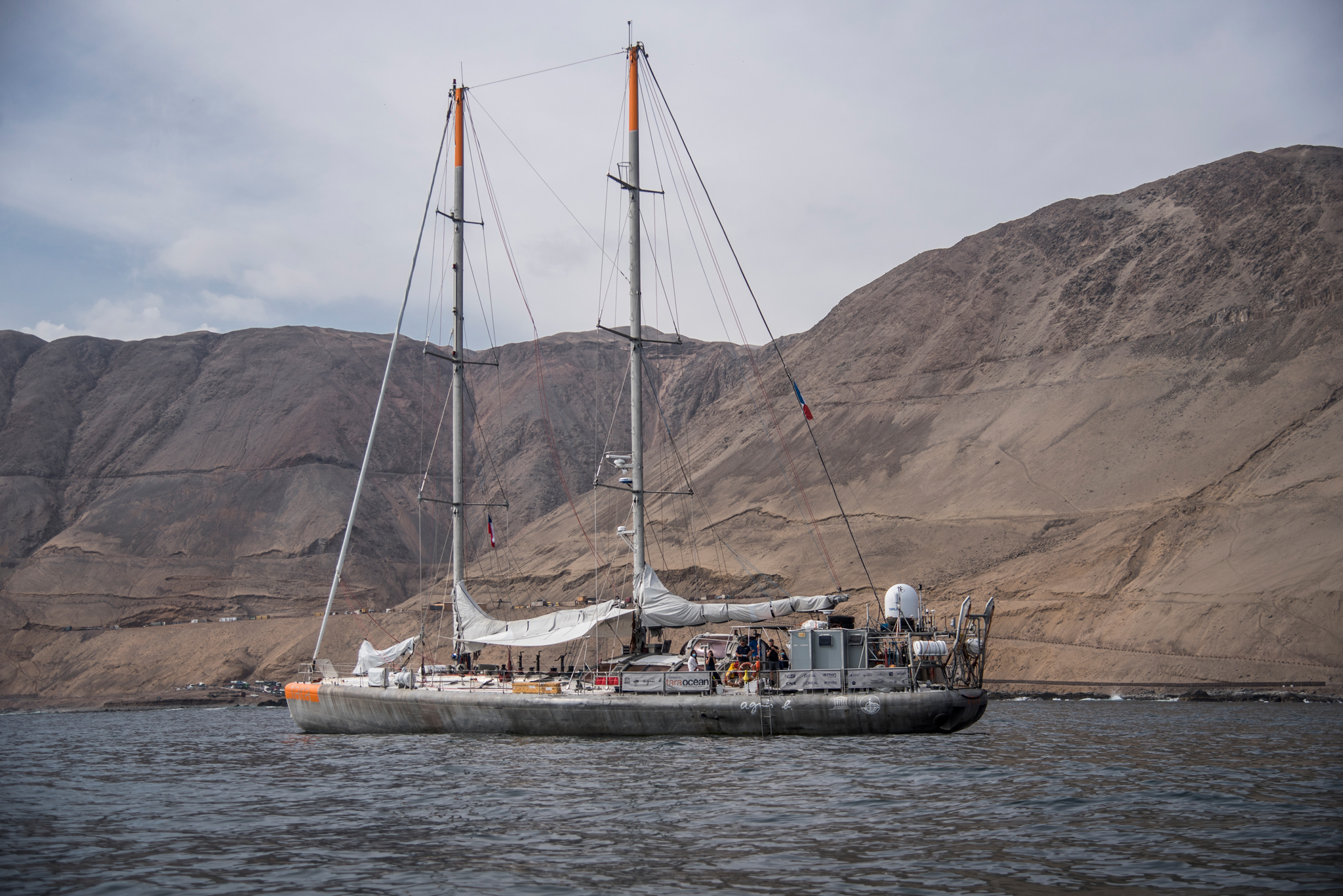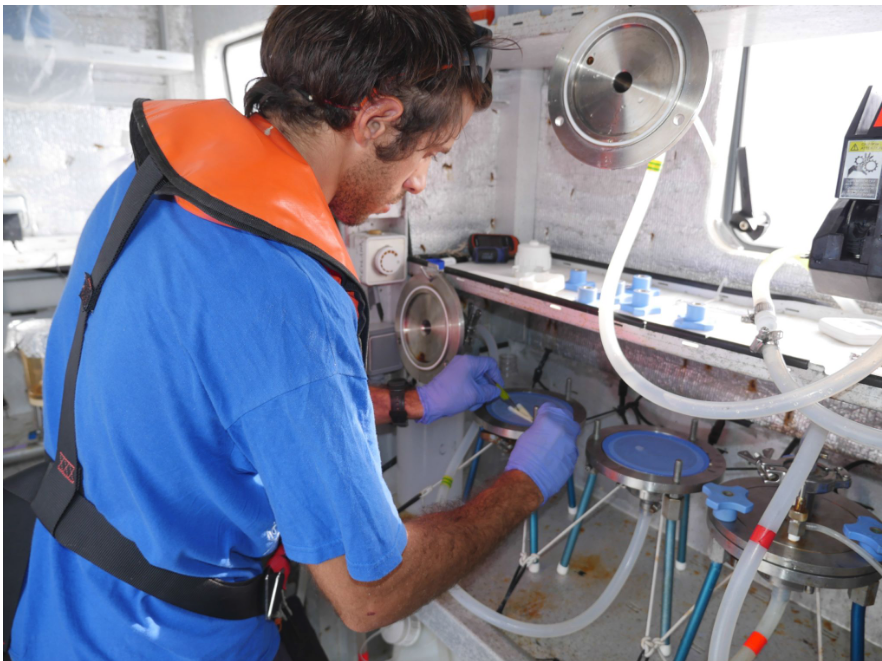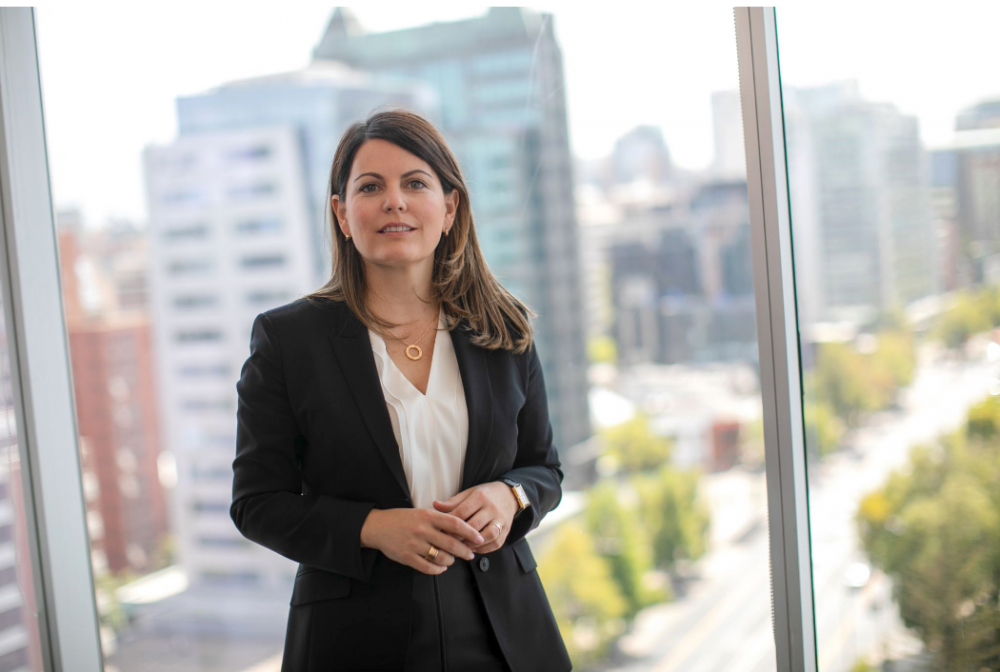Scientists are studying data on ocean microorganisms collected over ten years, which are complemented by findings made off the coast of Chile during the "Tara Microbiome/CEODOS" expedition that arrived in Iquique.

Santiago, May 13, 2021. Last Sunday, the sailboat Tara arrived to the coast of Iquique, as part of the expedition "Tara Microbiome/CEODOS". The vessel set sail in December last year from France and since February has been touring the Chilean coasts gathering information to understand marine biodiversity, plankton and its impact on climate change.
This is the sixth major expedition of this true floating scientific laboratory, which in the last 10 years has traveled more than 450,000 kilometers, passing through the seas of more than 60 countries. Now, at the end of its voyage through Chile, the sailboat will contribute its data to the French-Chilean technological scientific project, OcéanIA, financed by Inria, a French research institute in science and digital technologies.
OcéanIA is a four years ambitious challenge of scientific study, which began in November 2020 and will last until October 2024, with a budget of 1.5 million euros, funded by Inria, an institute present since 2012 in Chile. This research involves teams from Inria in Chile, and other centers in France: in Paris, Saclay and Sophia-Antipolis. The Tara Océans Foundation, the Center for Mathematical Modeling (CMM) of the University of Chile, the Pontificia Universidad Católica de Chile (PUC), the GO-SEE CNRS Federation and the Laboratoire des Sciences du Numérique de Nantes (LS2N) also participate.
This project aims to solve a global global challenge such as climate change, using artificial intelligence (AI), machine learning (ML) and various digital tools to understand the phenomena that occur in the ocean and affect all ecosystems.
Verbatim
Understanding the ocean itself not only represents a high-impact opportunity to understand the fight against climate change, it is also a challenge for modern artificial intelligence and applied machine learning. Biodiversity supports functions such as primary productivity, as well as carbon fixation and sequestration. Understanding this is critical, not only for science but also for formulating the right public policies.
Nayat Sánchez-Pi
The data collected by Tara will also provide information that explores the relationship between marine ecosystem functioning and biodiversity. In this way, the relationships that exist, for example, between plankton, water temperature and ocean currents will be understood.
Circular causality between different levels of biodiversity and thus ecosystem functioning is an ambitious question to be answered. With this data, the aim is to create research support tools that will combine areas of artificial intelligence such as explainability and causal inference, so that models representing new scientific discoveries and theories will be understandable and reliable.
"The idea is not only to produce models, but to produce new knowledge, which is essential to generate adequate public policies to protect marine ecosystems and combat climate change," explains the doctor in artificial intelligence.
Regarding the lessons learned and practical applications that could be obtained from the research, Sánchez-Pi points out that "we could try to model biodiversity and the entire marine community and then be able to predict the biogeochemical cycles they have.
On the other hand, we could achieve not only the recognition and automatic detection of plankton without the need for sampling, but also by using satellite images. Also, with the use of artificial intelligence methods, early decisions can be made and a specific coastal zone can be conserved," explains the expert.
"We are working with an interdisciplinary team of researchers from local and French centers and universities to address the challenge of combating climate change as a challenge of AI and ML. We want the complexity of understanding climate change to serve as a driver to advance the state of the art of future studies in our area. And with this, we want to position AI as a response to global challenges such as climate change or future pandemics", concludes Nayat Sánchez-Pi.


